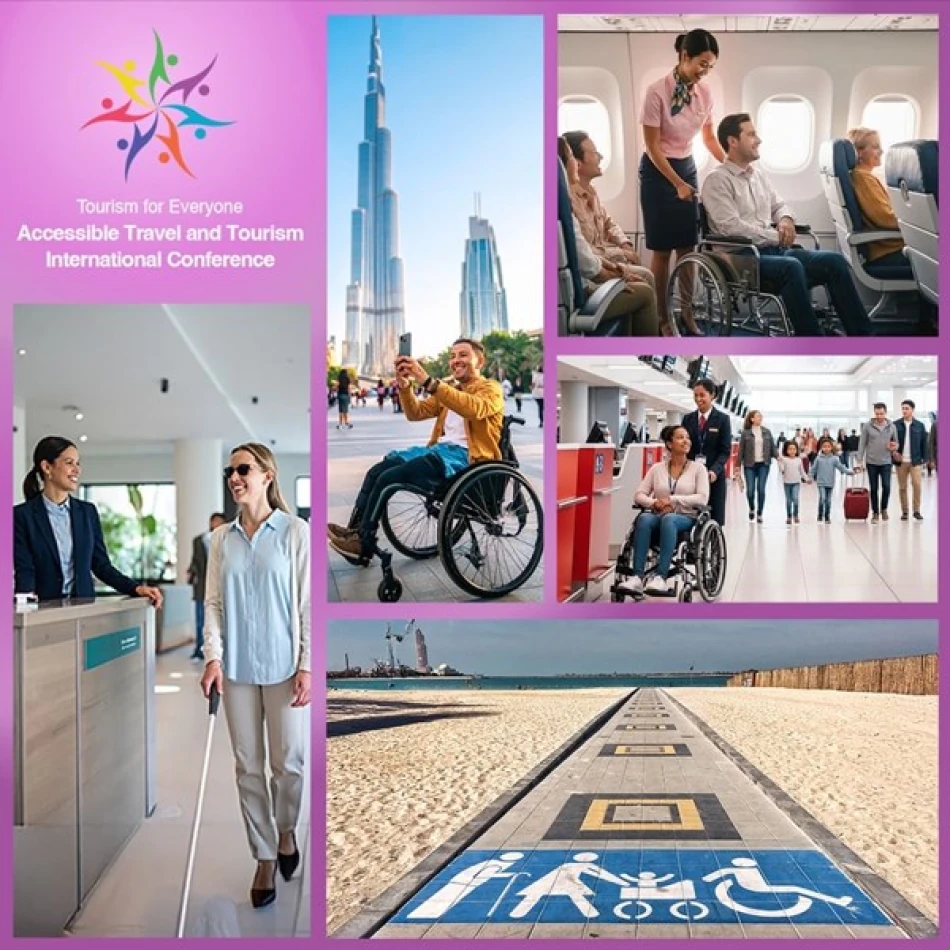
Dubai to Host Accessible Travel and Tourism Conference in October
Dubai Positions Itself as Global Leader in Accessible Tourism with Major Industry Conference
Dubai is making a strategic play to capture a massive and underserved tourism market worth billions of dollars. The emirate will host the fifth International Conference on Accessible Travel and Tourism on October 7-8, targeting the 1.3 billion people with disabilities worldwide who represent an untapped goldmine for the global travel industry. This isn't just about social responsibility—it's about smart economics in a sector projected to grow exponentially.
The Numbers Tell a Compelling Story
According to World Health Organization estimates, people with disabilities constitute 15% of the global population—approximately 1.3 billion individuals—with projections indicating this figure could reach 2 billion by 2050. The European Network for Accessible Tourism reports that 257 million tourists actively seek accessible destinations, representing a market segment that most destinations have largely ignored.
This demographic doesn't just travel alone. Accessible tourism typically involves companions and family members, effectively multiplying the economic impact. When a destination becomes truly accessible, it often attracts multiple travelers per disabled visitor, amplifying revenue potential significantly.
Dubai's Strategic Advantage
The conference, held under the patronage of Sheikh Ahmed bin Saeed Al Maktoum—who heads Dubai Civil Aviation Authority, Dubai Airports, and Emirates Airlines—signals the emirate's commitment to capturing this market at the highest levels of government and industry.
Building on Existing Infrastructure
Dubai's approach leverages its existing world-class infrastructure. The city has already earned recognition as an autism-friendly destination for children, while Emirates Airlines and Dubai Airports have received certifications as accessible facilities. This foundation provides a competitive advantage over destinations starting from scratch.
The conference will feature a dedicated session titled "Lessons from Dubai," showcasing collaborations between Emirates, Dubai Airports, the Roads and Transport Authority, and the Department of Economy and Tourism. This integrated approach—involving aviation, ground transport, and tourism authorities—demonstrates the comprehensive strategy needed to succeed in accessible tourism.
Market Implications and Global Context
Dubai's timing is strategic. While European destinations like Barcelona and London have made accessibility improvements, and Singapore has invested in inclusive infrastructure, the Middle East remains relatively untapped for accessible tourism. Dubai's positioning could establish it as the regional hub for this market segment.
Economic Multiplier Effects
Accessible tourism generates higher average spending per visitor. Travelers with disabilities often stay longer, book higher-category accommodations, and travel during off-peak seasons—exactly what destinations need to optimize revenue and capacity utilization. This market segment also demonstrates higher loyalty rates, creating sustainable long-term revenue streams.
Industry Transformation in Motion
The participation of senior officials from the World Tourism Organization, Airports Council International, and the International Air Transport Association indicates this isn't a peripheral initiative—it's becoming central to global tourism strategy.
For tourism investors and operators, Dubai's accessible tourism push represents both opportunity and competitive pressure. Properties and services that adapt early will capture market share in a segment projected to grow faster than general tourism. Those that lag risk exclusion from an increasingly important revenue stream.
Dubai's systematic approach—combining government backing, infrastructure investment, and industry coordination—positions it to capture disproportionate value from the accessible tourism boom. As global demographics shift toward an aging population and greater disability awareness, the emirate is betting that accessibility will evolve from nice-to-have to must-have for competitive destinations.
Most Viewed News

 Layla Al Mansoori
Layla Al Mansoori






